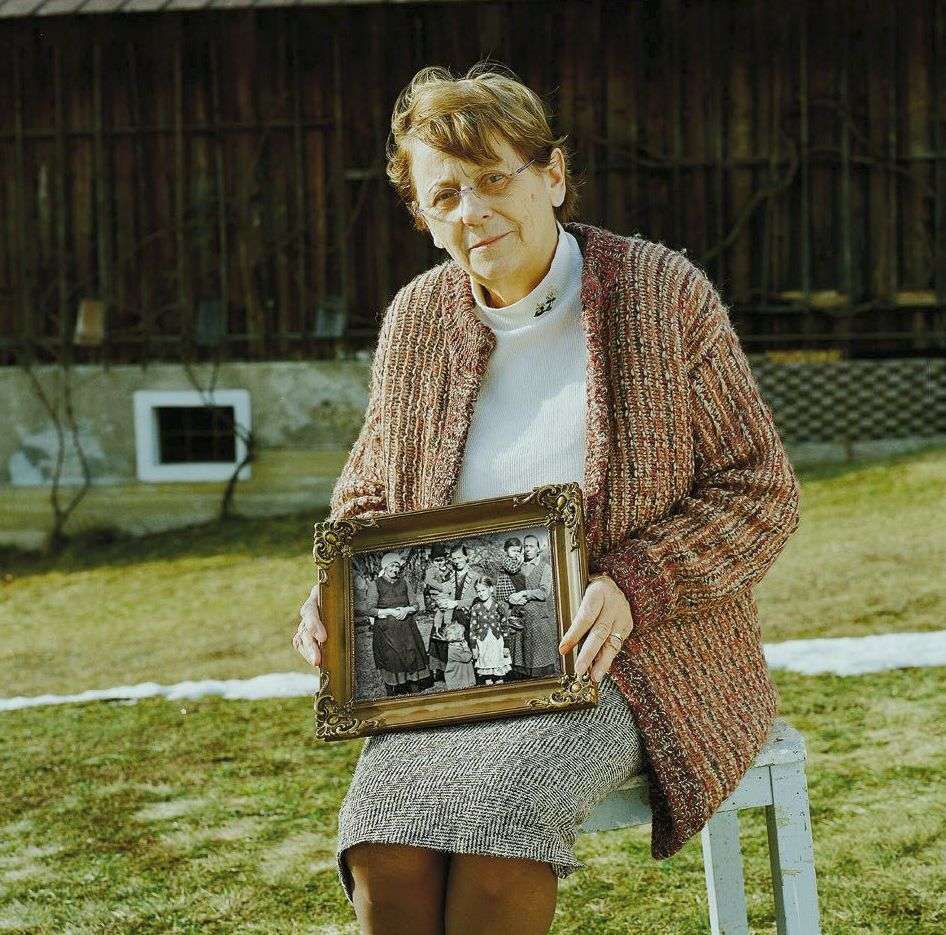Theresia Hafner
It was as if I had lost a brother
Theresia Hafner comes from a Slovenian family in Carinthia. She was born an only child on 11th October 1939 in Matschach/Mače.
As her parents supported the partisans, her childhood was characterized by the fear of being discovered or betrayed. As a young child, Mrs. Hafner had to experience the resettlement of her relatives, which deeply traumatized her and her family. Today, she still has trouble sleeping and suffers panic attacks.
I grew up in Matschach as an only child, with my parents Margareta, born in 1910 and Johann Malle, born in 1904. My father was a saw worker and my mother a housewife. We were little "Keuschler" [1] – we had a cow, two pigs and a few chickens, in order to be able to survive more easily. We belonged to the Slovene population and were therefore subjected to persecution by the Nazis. We lived in constant fear of our contact with the partisans being exposed, who we mainly supported, as far as I know, by providing food. They often knocked on our window during the night asking for food. My mother was always afraid that we were being watched by the neighbors. She gave whatever she could spare to the partisans.
Then, in May 1944, I experienced the traumatic resettlement of the Kriznar family, known as Bovcar, from the house in which my mother grew up, which was about 100 meters away from us. The Bovcar family was active in the OF resistance [2] and was betrayed. As a result, my fragile and badly asthmatic grandmother, Barbara Kriznar, born in Windisch-Bleiberg, two aunts and four uncles were resettled. My grandfather had already died of an illness years before. Three uncles were sent to Dachau. One uncle had shot a Gestapo man a short while earlier.
I can still hear the voice of my grandmother as she said her tearful goodbyes to my mother today. When the convoy with the prisoners and with all the supplies, such as grain, potatoes and above all livestock (cows, horses) stopped in front of our house, the SS man threw my five year old cousin Philipp over the fence where he lay at my feet. Philipp was the son of my Aunt Katerina. He was unable to cope with his terrible treatment his whole life and at the age of 26 he committed suicide. It was as if I had lost a brother.
After the arrest of the Bovcar family, house searches were carried out on us and we were also threatened with resettlement. The ever-present fear in our family has caused me to have difficulty sleeping and emotional problems. I still haven't gotten over these events today.
First publication of this article in: Renate S. Meissner on behalf of the National Fund (Ed.): Lives Remembered. Life Stories of Victims of National Socialism. Vienna, 2010, pages 211-213.


